How to Treat Sinusitis in a Natural Way
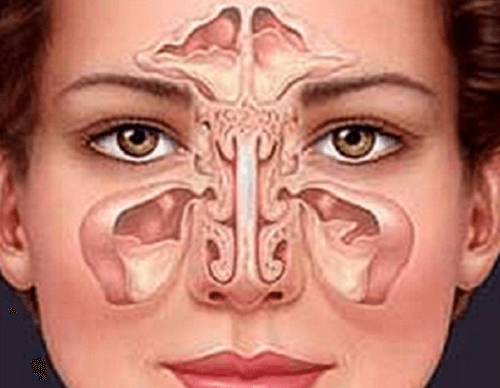
Any inflammation of the nasal passages is known as sinusitis. It affects the top part of the nose and can cause strong headaches and nasal congestion. The first step should be to go and see your doctor. However, if you want to know how to treat sinusitis in a natural way, we’ve got some remedies for you.
What you should know about sinusitis
As just mentioned, sinusitis is an inflammation of nasal passages, that is, of the hollow cavities that are located in cheekbones and around and behind the nose. This condition can be chronic or acute. Some people suffer from it for weeks, months or even year, due to not treating it or not paying enough attention to the condition.
The symptoms of sinusitis
- Strong headaches
- Pain in the sinuses
- Fever
- Constant secretion from the nose
- Red nose
- Fatigue
- Bad breath
- Sensation of a swollen face
- Bloodshot or watery eyes
- Eye pain
- Pain in the teeth, especially in the molars
- Nosebleeds
- General discomfort and uneasiness
- Cough and cold (for those who suffer from chronic sinusitis)
- Lack of smell (hyposmia)
- Pain when chewing or swallowing
- Dysphonia or hoarseness
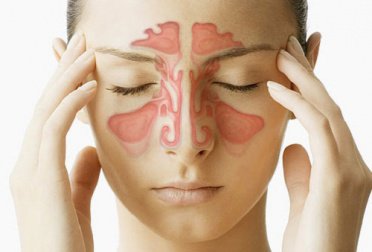
There are two types of sinusitis and each depends on the appearance of one or more symptoms, and also if they are more or less intense and when they appear.
Acute sinusitis
In the majority of cases, this is usually cause by a bacterial infection. It happens due to a complication from a respiratory viral infection, such as a common cold, flu or “badly cured” cold.
This is the most common type of sinusitis.
Also read: What to Do When You’re Sick at Home with the Flu
Chronic sinusitis
While chronic sinusitis can also caused by a bacterial infection, often the cause is due to an inflammatory disease, such as bronchial asthma, or by allergies.
Seasonal allergies can inflame the lining of the sinuses and the nose, hindering and preventing the elimination of bacteria. Since this condition appears several times (each year, for example, or when the seasons change), chronic sinusitis more difficult to treat and eradicate.
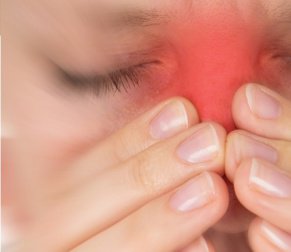
How to prevent and treat sinusitis
The treatment of sinusitis should be prescribed by a physician. Antibiotics may or may not be necessary depending on the type of sinusitis and symptoms:
- Acute sinusitis. Generally, it doesn’t require treatment because it disappears on its own. However, the doctor can give us certain guidelines to relieve the symptoms, such as:
- Nasal washes with saline solution
- Nasal corticosteroids, such as fluticasone or budesonide
- And also nasal decongestants
- Pain relievers such as acetaminophen
- In severe cases, treatment with antibiotics may be necessary.
- Chronic sinusitis. Your doctor may recommend treatment based on:
- Nasal corticosteroids, such as fluticasone or budesonide
- Nasal washes with saline solution
- In severe cases, oral or injectable corticosteroids may be needed
- When bacterial infection occurs, antibiotics are often used to fight it
- In cases caused by allergies, immunotherapy may be necessary
- In the most extreme cases, sinus surgery is an option.
However, it’s very important to keep in mind that nasal decongestants shouldn’t be abused, as they can cause more severe rebound congestion than the initial one. Always follow the guidelines recommended by your doctor.
However, with these tips you can try to prevent it, as you will improve your health and be less prone to infections.
Treat sinusitis with a healthy diet
One of the ways to always be healthy starts with your food. Many allergies, inflammations, infections, and illnesses are caused by a poor diet.
If you’re not careful with your diet, if you consume too many products that contain refined sugar (pasties, cakes, soft drinks), saturated fats (hamburgers and hot dogs), salt (breaded and processed foods), canned foods, etc., your health will be adversely affected.
Therefore, if you’re suffering from a type of sinusitis or if you want to avoid prevent so or you have suffered from it in the past, you must begin to eat in a more healthy manner.
Keep a more balanced diet by choosing whole grain products instead of refined ones, eat fruits and vegetables, choose cooked foods that are not fried (such as oven baked or steamed) and don’t eat at fast food restaurants.
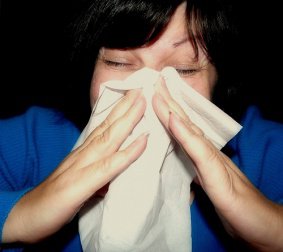
Choose healthy surroundings
An irritating room or surrounding is not good for people who suffer from or are prone to sinusitis. This means that you should be alert to avoid as much as possible areas where there are the following:
- Smokers
- Toxic waste, such as a factory for example
- Places where they clean with very strong products, such as bleach
- A concentration of environmental pollution, such as the city center
Read more: 10 More Reasons to Quit Smoking
Emotions
Your mood can have a big influence on how your body reacts. Tension, irritation, stress, fatigue, nerves, anxiety and depression can play against you in many ways.
When it comes to treat sinusitis, try to relax, take things more calmly, put aside the concerns and pressures, go on vacation more often (or at least spend a day in the country), get enough sleep, take immersion baths (which will also help “relax” the nasal passages) and drink relaxing infusions such as chamomile, Valerian root, linden, etc.
Phytotherapy, that is, the use of medicinal plants, has been shown to be effective in the treatment of sinusitis, as demonstrated by scientific evidence. In addition, it’s safe and well tolerated by most patients. One of the articles that demonstrates this was published in 2015: Phytoneering: a new way of therapy for rhinosinusitis.
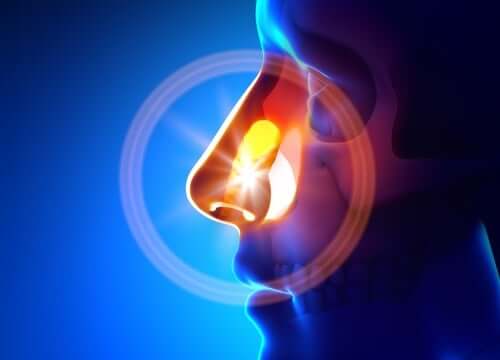
Conclusion
We hope you’ve know learnt a little more about this disease. Staying healthy is the best prevention for most diseases, so we recommend that you follow these tips. Even so, if you suffer from this disease it’s best to go to your doctor to assess your case and get the right treatment.
All cited sources were thoroughly reviewed by our team to ensure their quality, reliability, currency, and validity. The bibliography of this article was considered reliable and of academic or scientific accuracy.
- Sinus infection. (n.d.).
acaai.org/allergies/types/sinus-infection - Sinus infection (sinusitis). (2017).
cdc.gov/antibiotic-use/community/for-patients/common-illnesses/sinus-infection.html - Li JTC. (2017). Acute sinusitis: Do over-the-counter treatments help?
mayoclinic.org/diseases-conditions/acute-sinusitis/expert-answers/acute-sinusitis/faq-20058562 - Passali, D., Cambi, J., Passali, F. M., & Bellussi, L. M. (2015). Phytoneering: a new way of therapy for rhinosinusitis. Acta otorhinolaryngologica Italica : organo ufficiale della Societa italiana di otorinolaringologia e chirurgia cervico-facciale, 35(1), 1–8.
This text is provided for informational purposes only and does not replace consultation with a professional. If in doubt, consult your specialist.








